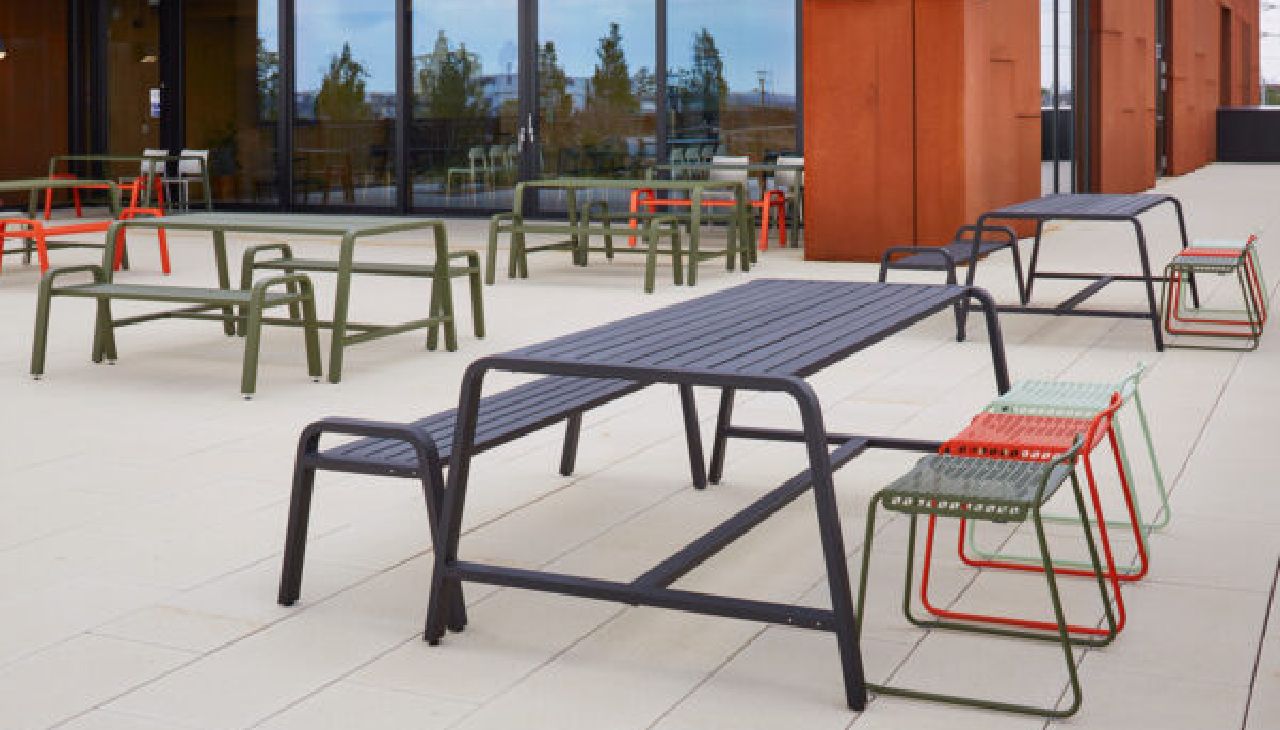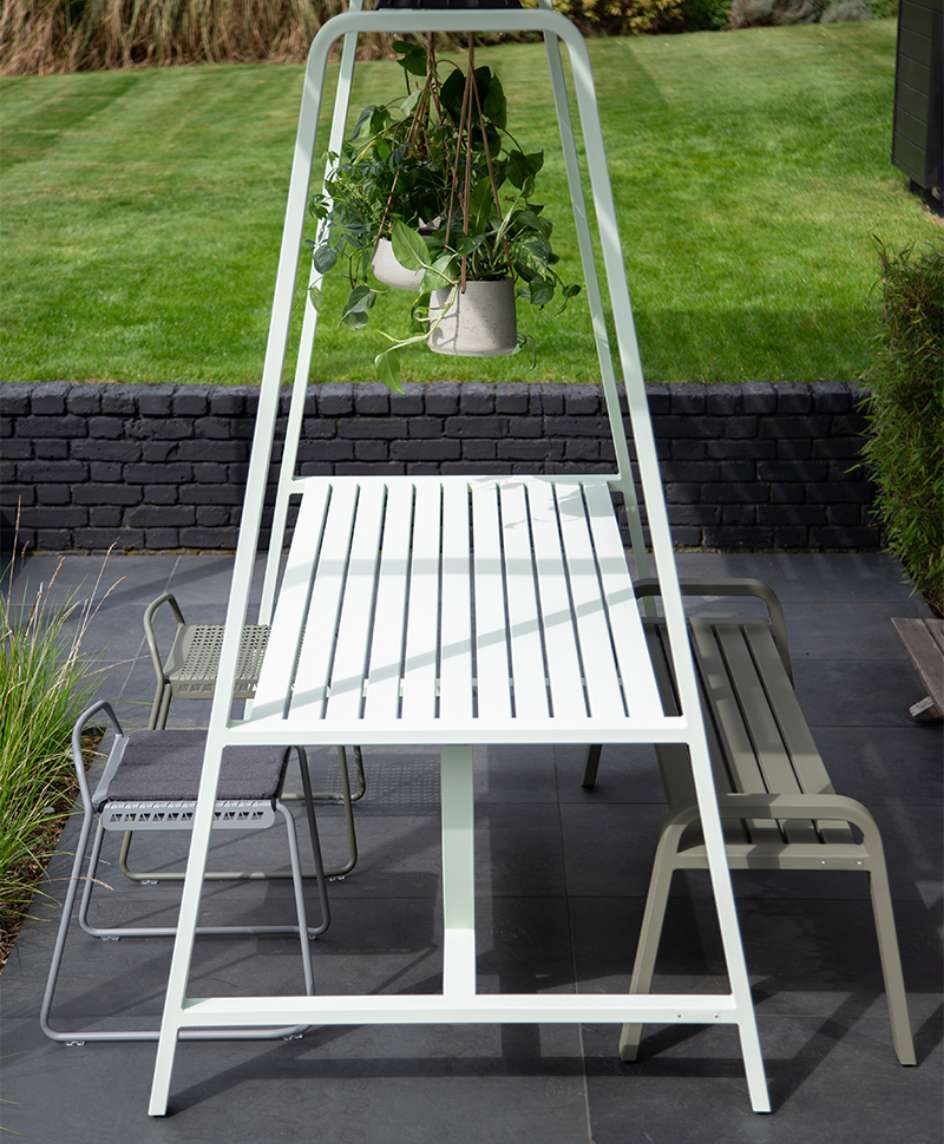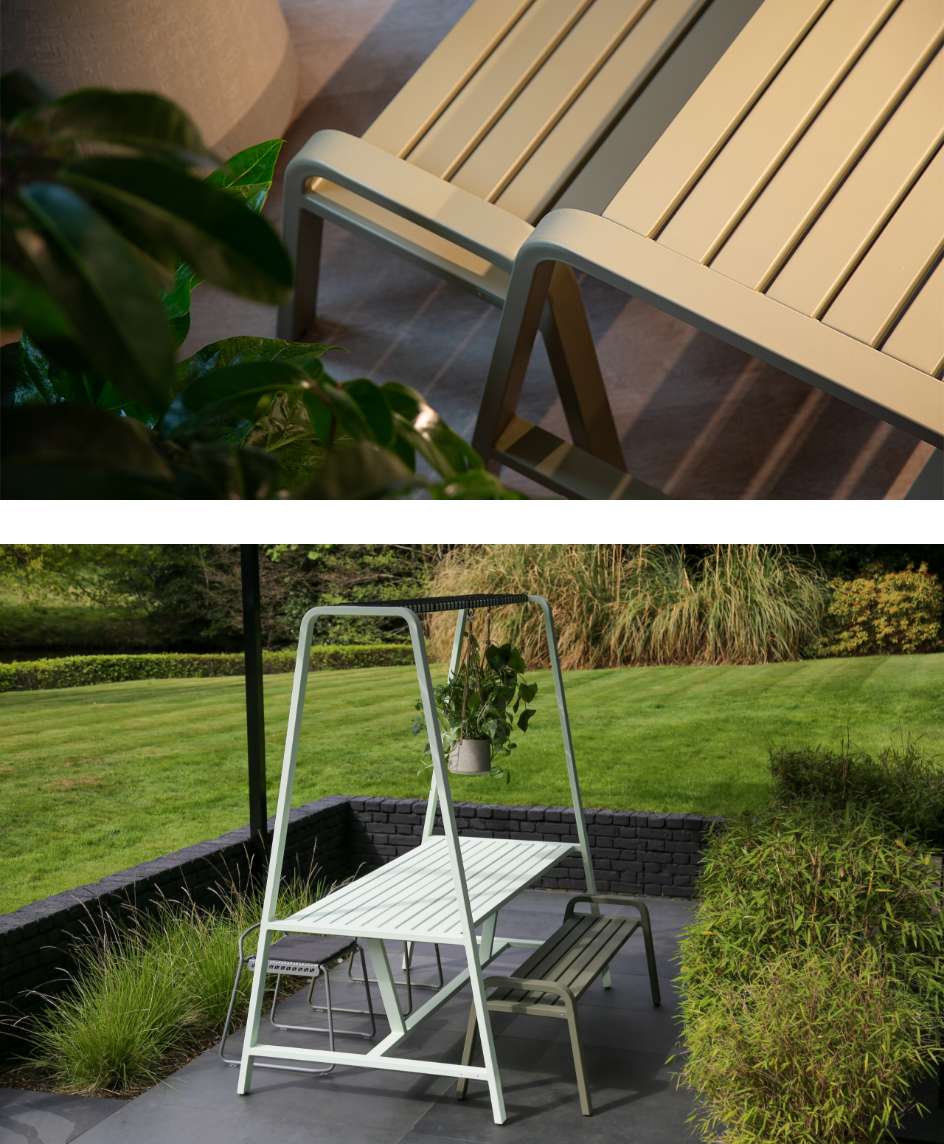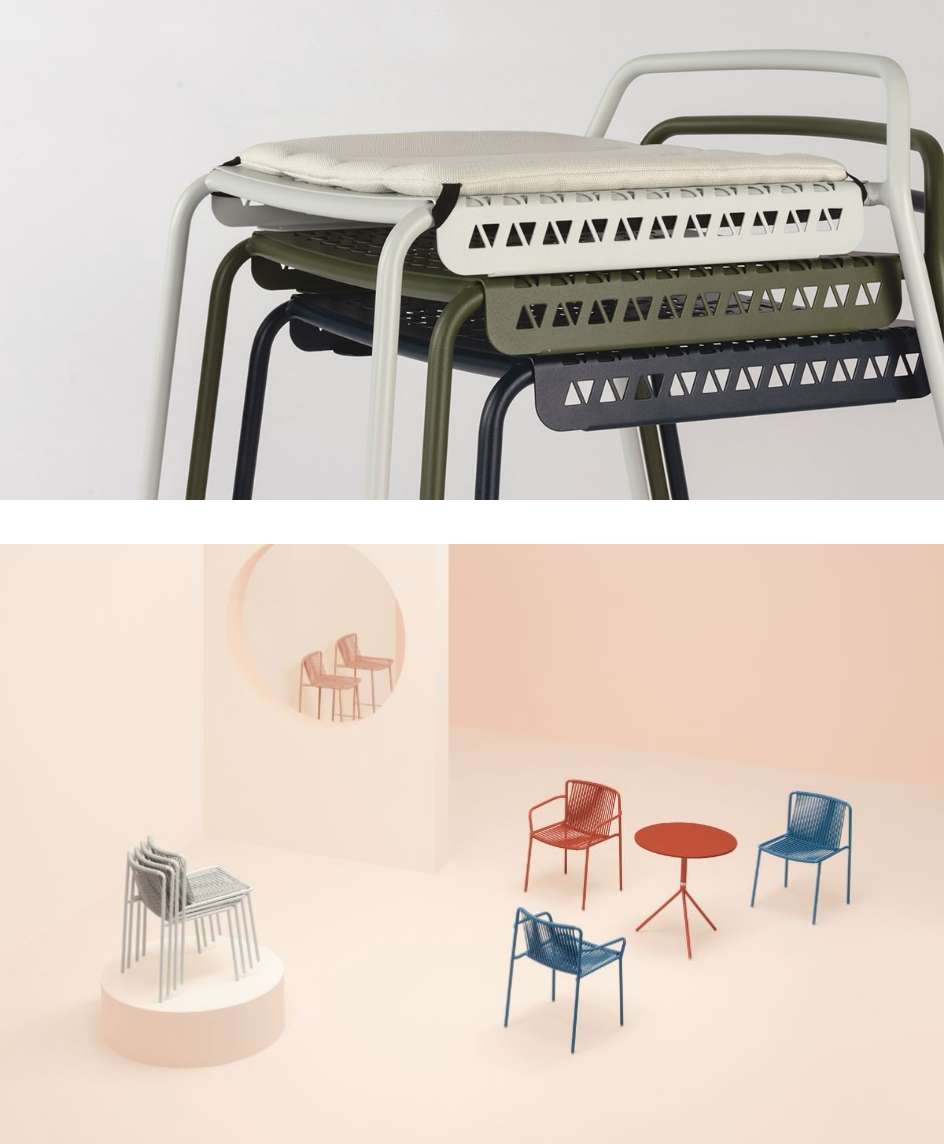Our Outdoors Range
Selecting outdoor furniture for commercial spaces involves considering purpose, budget, durability, comfort, aesthetics, maintenance, layout, branding, accessories, regulations, sustainability, and reviews. Make thoughtful choices to create a comfortable, visually appealing, and functional outdoor area that aligns with your brand and budget while complying with local regulations.
• Frovi – Osti, Osti Cloud & Veck
• Pedrali – Tribeca
• Modus Furniture – Edge by Pearl Lloyd





Key Considerations
Let’s expand on the key considerations when selecting outdoor furniture for commercial spaces:

Purpose & Functionality
Begin by clearly defining the primary function of your outdoor space. Is it intended for dining, lounging, waiting, or a combination of these? The purpose will influence the types of furniture you need and their arrangement. For instance, a restaurant might require dining sets, while a hotel might need lounge seating near a pool.

Budget Allocation
Establish a well-defined budget for your outdoor furniture project. This budget should encompass not only the cost of the furniture itself but also expenses related to installation, maintenance, and any additional accessories or amenities.

Durability and Weather Resistance
Commercial outdoor furniture must withstand various weather conditions, from scorching sun to heavy rain and even snow, depending on your location. Consider materials that are durable and weather-resistant, such as powder-coated metal, teak wood, or high-quality synthetic wicker. These materials can handle exposure to the elements without significant deterioration.

Comfort and Ergonomics
Customer or guest comfort is paramount. Choose furniture that provides adequate support and comfort for extended use. Ergonomically designed seating can enhance the overall experience, especially in areas where people will spend significant time.

Aesthetics and Brand Alignment
The appearance of your outdoor space should align with your brand identity and the overall design theme of your establishment. Select furniture that complements your branding, considering colour schemes, textures, and patterns that reflect your desired aesthetic.

Maintenance Considerations
Different materials require varying levels of maintenance. Some may need regular cleaning, sealing, or repainting, while others are low-maintenance. Factor in the cost and effort required to maintain the chosen furniture when making your decision.

Layout and Space Planning
Efficient space planning ensures that you maximise the utility of your outdoor area without overcrowding it. Ensure easy circulation and accessibility, especially for customers with mobility needs. Flexibility in layout is also crucial for adapting to different events or seasons.

Versatility and Accessories
Consider modular furniture or pieces that can be easily rearranged to suit different purposes or accommodate larger groups. Enhance comfort and functionality with accessories like umbrellas, cushions, outdoor heaters, and lighting to create a welcoming ambiance.

Regulations and Compliance
Check local building codes and regulations to ensure that your outdoor furniture adheres to safety and accessibility standards. This includes compliance with ADA regulations for accessibility.

Sustainability and Environmental Impact
As sustainability becomes increasingly important, consider eco-friendly options. Look for furniture made from recycled materials or items that can be recycled at the end of their lifecycle to reduce your environmental footprint.

Maintenance Plan
Develop a structured maintenance plan that includes regular cleaning, inspections, and repairs to ensure the longevity of your outdoor furniture and preserve its appeal.